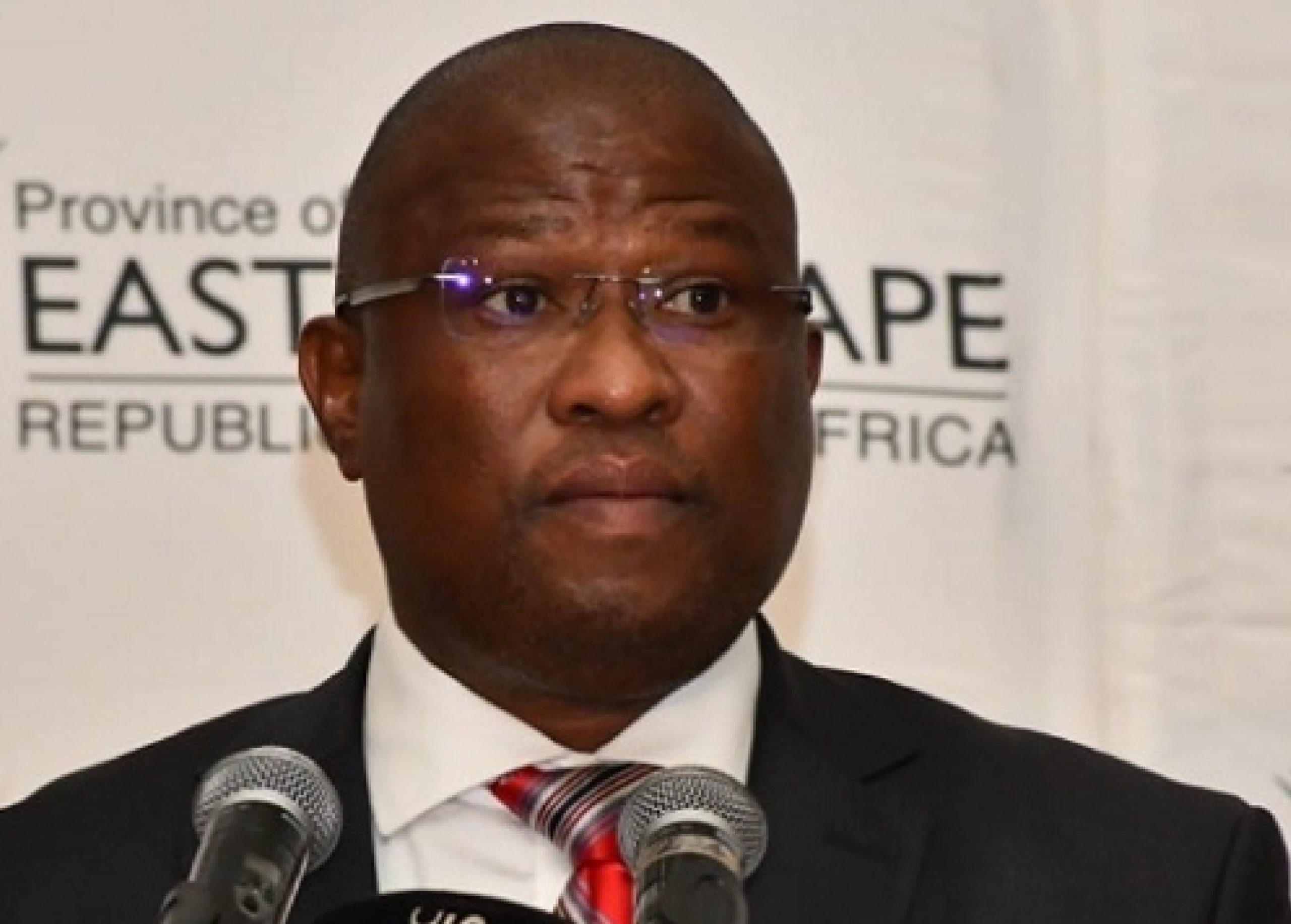Introduction
The Mabuyane ruling has become a flashpoint in South Africa’s debate over corruption, academic integrity and political power. In October 2025, the Bhisho High Court found that the Special Investigating Unit (SIU) acted unlawfully when it probed Eastern Cape Premier Oscar Mabuyane’s admission to a master’s programme at the University of Fort Hare. The judge called the investigation an “abuse” and “unconstitutional”, and ordered it to be set aside.
However, the SIU insists its broader Fort Hare investigation, now running under an amended presidential proclamation, continues unchanged. At the same time, the ANC in the Eastern Cape has hailed the outcome as a major victory for the premier.
Below, we unpack six key questions that help explain what this judgment really means.
Mabuyane ruling: How did this case even start?
The controversy goes back to 2021, when the University of Fort Hare deregistered Premier Oscar Mabuyane from its master’s programme in public administration. The university said proper admission rules may not have been followed, and the matter became linked to broader concerns about irregular registrations involving politically connected figures.
Fort Hare’s convocation and parts of civil society called for an independent probe. At the same time, allegations surfaced that some public officials were admitted or progressed through degrees without meeting normal academic standards.
In response to reports of maladministration and possible fraud at the university, President Cyril Ramaphosa signed a proclamation authorising the SIU to investigate specific issues at Fort Hare, including irregular honours qualifications and certain contracts.
Within this wider probe, Mabuyane’s admission and deregistration became a high-profile test case of how political influence and academic processes may intersect.
Mabuyane ruling: What exactly did the court order?
On 23 October 2025, Acting Judge Ntsikelelo Mtshabe of the Bhisho High Court ruled that the SIU’s investigation into Mabuyane’s master’s admission, conducted under Proclamation 84 of 2022, was unlawful.
The proclamation allowed the SIU to investigate certain irregularities at Fort Hare, especially around honours degrees and specific administrative and financial matters. The court found it did not clearly extend to master’s and doctoral programmes. By applying this mandate to the premier’s admission, the SIU was judged to have gone beyond the powers granted by the president.
The judge declared the investigation into the premier’s master’s registration an “abuse” and “unconstitutional”, and ordered it to be reviewed and set aside. The court also granted a punitive costs order against the SIU, signalling serious displeasure with how this part of the probe was handled.
Crucially, the order is about legality and process. It does not rule on whether academic fraud happened or not.
Mabuyane ruling: If the probe was set aside, why is the SIU still talking about Fort Hare?
Soon after the judgment became public, the SIU stressed that the court order applies only to the earlier, narrower proclamation that had guided its initial work related to Mabuyane’s master’s admission. According to SIU spokesperson Kaizer Kganyago, the unit had already secured a newer proclamation that expanded its mandate to cover all qualifications at Fort Hare – including bachelor’s, honours, master’s and PhDs.
Under this amended proclamation, the SIU says it can still investigate systemic irregularities in admissions and degrees at the university, “including those obtained by Premier Mabuyane”.
Supporters of the Mabuyane ruling argue that the court has nonetheless sent an important message: investigative bodies must stay within the exact limits of their legal mandates, especially when probing the actions of powerful political leaders. Critics of the premier counter that the broader Fort Hare investigation could still reveal damaging information, regardless of this procedural win.
Mabuyane ruling: What is Fort Hare’s role in this saga?
Fort Hare is at the centre of both the allegations and the clean-up. The university’s historic status as a training ground for African leaders makes any suggestion of academic fraud particularly sensitive. Reports that some students, including high-profile politicians, may have been admitted or progressed without meeting the usual requirements have raised serious concerns about governance at the institution.
The university has made it clear that it supports the SIU’s wider mandate to investigate irregularities in qualifications and contracts. It has publicly rejected the idea that the court order has stopped all investigations on campus, stressing that the amended proclamation still applies.
At the same time, Fort Hare’s 2021 decision to deregister Mabuyane from the master’s programme is now being challenged in court by the premier’s legal team. He insists he met the requirements through the university’s Recognition of Prior Learning policy, which allows experienced professionals without an honours degree to access certain postgraduate programmes.
Mabuyane ruling: How has the ANC reacted politically?
The ANC in the Eastern Cape has loudly celebrated the court decision. Provincial leaders quickly framed it as a “landmark” judgment that vindicates the premier and exposes what they describe as politically motivated attempts to undermine him.
In public statements, ANC spokespeople have accused the SIU of “abusing its authority” and have suggested that the premier was unfairly made the centre of an investigation not properly backed by the original proclamation. The party argues that any mistakes in the admission process should primarily be blamed on the university, not on an individual student who applied through formal channels.
This political framing strengthens Mabuyane’s position inside the party. It offers internal structures a narrative that he has been cleared on procedural grounds, even while the broader Fort Hare probe continues and no final findings have been released. For critics, this raises concerns that political loyalty may be placed ahead of a full examination of the facts.
Mabuyane ruling: What does it mean for the powers of anti-corruption bodies?
The judgment highlights a tricky balance. South Africans expect institutions like the SIU to act decisively against fraud and corruption. But the Mabuyane ruling shows that strong intentions are not enough; investigations must also be anchored in clear, carefully drafted legal mandates.
By ruling that the probe into Mabuyane’s master’s admission fell outside the scope of the initial proclamation, the court effectively reminded investigators that they cannot “read in” powers that the president did not explicitly grant. This is especially important when probes touch on the rights and reputations of elected leaders.
For anti-corruption agencies, the message is twofold: they must push hard against wrongdoing, but they must also ensure that every step is legally defensible. Otherwise, they risk losing cases on procedural grounds and giving alleged wrongdoers a platform to claim victimhood rather than answer difficult questions.
Mabuyane ruling: How does this affect public trust in academic qualifications?
Beyond politics, the case raises uncomfortable questions about how much faith South Africans can place in academic credentials, especially when held by senior officials. If degrees or admissions can be influenced by connections instead of merit, it threatens the fairness of the entire system.
The Fort Hare scandal has already prompted calls for stronger oversight of admissions, clearer application of Recognition of Prior Learning policies, and stricter controls on who is allowed to supervise or approve postgraduate research. These are not only internal academic matters; they affect how employers, voters and institutions judge competence.
For many citizens, the Mabuyane ruling is a reminder that protecting the integrity of universities is about more than paperwork. It is about ensuring that qualifications genuinely reflect learning and that public leaders earn the titles they carry.
Mabuyane ruling: What does it change for the premier personally?
In the short term, the judgment clearly helps Mabuyane. A court has ruled in his favour on how he was treated by the SIU, and the ANC has publicly rallied behind him. There are no criminal charges against him arising from this matter, and the court’s criticism of the investigation strengthens his argument that he has been targeted unfairly.
However, this does not erase all uncertainty. The premier still faces a separate battle over his deregistration from the master’s programme, and the SIU has made it clear that its broader investigation into qualifications at Fort Hare continues under the amended proclamation.
His long-term standing will depend on what those processes reveal. If future findings suggest serious irregularities linked to his studies, the political and public reaction could be very different from today’s celebrations.
Mabuyane ruling: What are critics and supporters arguing now?
Supporters say the court has confirmed that the SIU overstepped its authority and that the premier was caught in the crossfire of a politically loaded investigation. They stress that he denies any academic fraud and argue that responsibility for admission decisions lies with the university’s structures, not with applicants.
Critics, including some opposition voices and civil society observers, warn that focusing on procedural errors may distract from deeper questions about how degrees and admissions were handled at Fort Hare. They argue that South Africans still do not have a full picture of what happened inside the university, and that the amended SIU mandate shows there was genuine cause for concern.
These debates will likely intensify once the SIU finalises its reports and once the courts rule on Mabuyane’s challenge to his deregistration. Until then, both sides will continue to claim that the judgment proves their version of events.
Mabuyane ruling: What should South Africans watch for next?
Several developments will determine how this story ends. First, the outcome of the premier’s case against Fort Hare over his deregistration will be critical. That judgment will reveal whether the university followed fair procedures and properly applied its own admissions policies.
Second, the SIU’s eventual findings on Fort Hare’s qualifications will show whether there is evidence of systematic abuse of the admissions and degree-award systems, and whether specific individuals will face criminal or civil consequences.
Third, the political reaction inside the ANC and in provincial government will be closely watched. Citizens will want to see whether leaders treat the saga as an opportunity to strengthen integrity, or whether it becomes another example of controversy being managed away without real accountability.
FAQs
1. Does the court’s decision end all investigations into Fort Hare?
No. The Mabuyane ruling only set aside the earlier SIU investigation into his master’s admission under Proclamation 84 of 2022, while a newer proclamation still allows a broader Fort Hare probe to continue.
2. Did the court say Mabuyane’s degree was fake or fraudulent?
The Mabuyane ruling did not decide whether academic fraud occurred; it focused on the legality of the SIU’s actions, leaving questions about the master’s programme and deregistration to other investigations and court cases.
3. Can the SIU still investigate qualifications linked to the premier?
Yes. After the Mabuyane ruling, the SIU confirmed it will continue investigating all qualifications at Fort Hare under the amended proclamation, which includes any degrees or admissions involving the premier.
Conclusion
The Mabuyane ruling delivers a significant legal victory for the Eastern Cape premier, but it does not close the chapter on Fort Hare or on questions about academic integrity in South Africa. The SIU’s wider investigation continues, the university’s deregistration decision is still under challenge, and political narratives around victimhood and accountability remain sharply contested.




